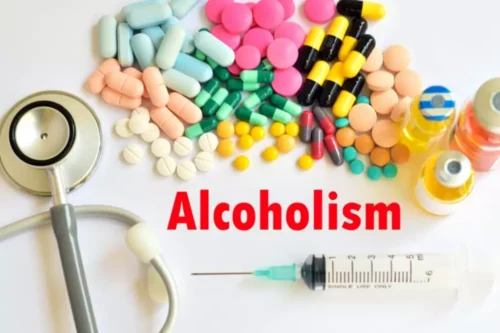
As with most other chronic diseases, such as diabetes, asthma, or heart disease, treatment for drug addiction generally isn’t a cure. People who are recovering from an addiction will be at risk for relapse for years and possibly for their whole lives. Research shows that combining addiction treatment medicines with behavioral therapy ensures the best chance of success for most patients.
Effects of Drug Addiction
In general, when narcotics are used under proper medical supervision, addiction happens in only a small percentage of people. Drug addiction isn’t about just heroin, cocaine, or other illegal drugs. You can get addicted to alcohol, nicotine, sleep and anti-anxiety medications, and other legal substances. To diagnose addiction, your healthcare provider may refer you to a psychiatrist, psychologist or drug and alcohol counselor. Your provider will ask you (and possibly your loved ones) questions about your patterns of substance use or problematic behaviors.

Mental Health
Then there are the hallucinogens – LSD, psilocybin, DMT, and their ilk. These mind-bending substances alter perception and consciousness, often producing profound and sometimes terrifying experiences. While not typically addictive in the traditional sense, hallucinogens can have long-lasting psychological effects. Some users report life-changing insights, while others struggle with persistent hallucinations or psychosis. The history of drug addiction is a long and winding road, stretching back to the dawn of civilization.
Klonopin Addiction Rate: Unveiling the Risks and Statistics

But substance abuse can also trigger or worsen mental health symptoms, creating a vicious cycle that’s hard to break. In order to maintain high-quality performance, some musicians take chemical substances.[104] Some musicians take drugs such as alcohol to deal with the stress of performing. As a group they have a higher rate of substance abuse.[104] The most common chemical substance which is abused by pop musicians is cocaine,[104] because of its neurological effects.
- As we wrap up this exploration of drug use and addiction, it’s worth reflecting on the complexity of the issue.
- Later stages may benefit from inpatient addiction treatment in a controlled setting.
- Drug addiction is a treatable, chronic medical disease that involves complex interactions between a person’s environment, brain circuits, genetics, and life experiences.
- The best plans are comprehensive, as addiction often affects many areas of life.
When should I see my healthcare provider about addiction?
Mindfulness meditation, yoga, acupuncture, and nutritional therapy are just a few examples of complementary approaches that some individuals find helpful in managing cravings and promoting overall well-being. The field of addiction treatment has come a long way, offering a diverse array of options to suit different needs and circumstances. It’s not a one-size-fits-all approach, but rather a toolbox of strategies that can be combined and customized for each individual. To truly understand addiction, we need to take a deep dive into the neurobiology of addiction. It’s a fascinating journey into the inner workings of the brain, where chemicals and circuits conspire to create the perfect storm of dependence. NIMH statistics pages include statistics on the prevalence, treatment, and costs of mental illness for the population of the United States.
Harvard Health Blog
- Dr. Zolotov concluded that a great need for formal education in medical cannabis exists and that standardized curricula can help bridge the existing gaps.
- Additionally, medications are used to help people detoxify from drugs, although detoxification is not the same as treatment and is not sufficient to help a person recover.
- Counselors may select from a menu of services that meet the specific medical, mental, social, occupational, family, and legal needs of their patients to help in their recovery.
- Next on our list are the stimulants – cocaine, amphetamines, and methamphetamines.
- After three years of virtual meetings, the 2024 NIDA International Forum returned to an in-person format.
Common addictive substances include alcohol, tobacco (nicotine), stimulants, hallucinogens, and opioids. Someone with a drug addiction uses drugs in a way that affects many parts of their life and causes major disruptions. They continue to use drugs compulsively despite the negative consequences.
Connect with NIMH
Ancient Sumerians were known to cultivate opium poppies, while the Incas chewed coca leaves for their stimulant properties. Fast forward to the 19th century, and we see the rise of morphine and cocaine as “miracle cures,” their addictive potential largely overlooked. https://ecosoberhouse.com/ The 20th century brought a wave of synthetic drugs, from amphetamines to barbiturates, each hailed as a solution before revealing their dark side. The NIMH Strategic Plan for Research is a broad roadmap for the Institute’s research priorities over the next five years.

When to seek emergency help

For instance, GHB, a naturally occurring substance in the central nervous system is considered a drug, and is illegal in many countries, while nicotine is not officially considered a drug in most countries. Stopping the substance or behavior often leads to withdrawal symptoms. People should not attempt to suddenly stop using a substance or engaging in a certain behavior without medical supervision. Symptoms of addiction often include declining physical health, irritation, fatigue, and an inability to stop using a substance or engaging in a behavior. Addiction can also lead to behaviors that strain relationships and inhibit daily activities.
In addition to getting appropriate treatment, there are things that you can do that will make it easier to cope and aid in your recovery. Support can go a long way what is drug addiction in making the recovery process more successful. Your brain and body’s reactions at early stages of addiction are different from reactions during the later stages.
We need NDLEA’s presence to mitigate security challenges,” Jibril said. New NIDA animation tackles a common question and explains the science behind drug use and addiction to help light the… The synthetic stimulant methamphetamine is widely considered one of the most addictive agents. Often inhaled, it directly affects the dopamine and other neurotransmitter systems system to produce an extremely fast and intense—but short-lived—high, with an altered sense of energy and power. Further, by changing the responsiveness of dopamine receptors, methamphetamine blunts the experience of reward from normal sources of pleasure.
